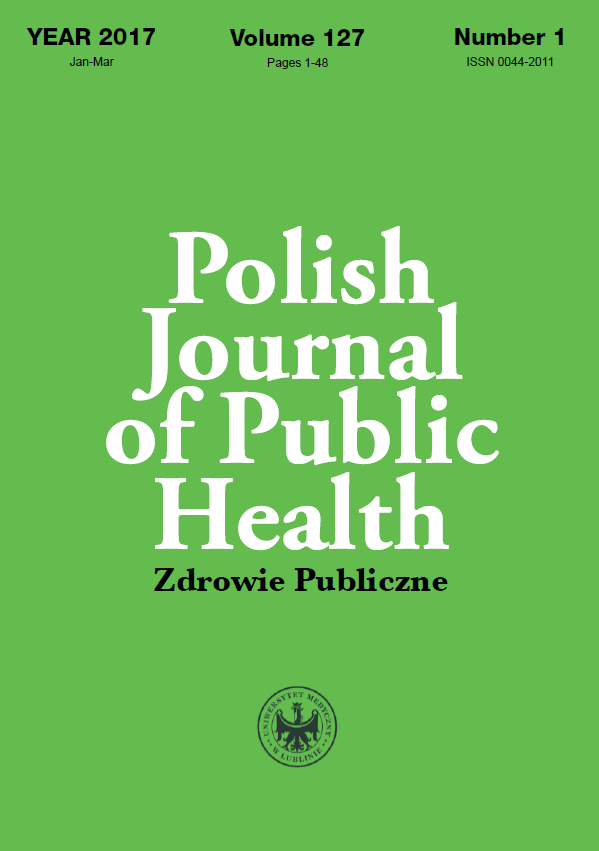Patients’ expectations of general practitioners
DOI:
https://doi.org/10.1515/pjph-2017-0001Keywords:
primary health care, general practices, general practitionerAbstract
Introduction. General practitioner (GP) plays an important role in the health care system as he is the first person that a patient turns to with his health related problem. The crucial role of the primary health care system is to control risk factors contributing to civilization diseases such as cancer, diabetes or cardiovascular diseases.
Aim. The aim of the research was the assessment of the selected aspects of patients’ satisfaction with a GP’s care. Conducted study provided answers to questions about the level of patient’s satisfaction, his expectations and needs in the field of doctor’s care within the primary health care system.
Material and methods. Diagnostic poll was used as a method to study public opinion. The poll was based on the research technique in the form of the original questionnaire consisting of 23 closed-ended questions. Study group consisted of 99 primary health care patients from lubelskie voivodship.
Results. The majority of the studied group assessed the quality of general practitioners’ services both in cities and rural areas as high. Respondents declared their satisfaction with the availability of diagnostic tests (73%), quality of information about health condition and treatment provided by the doctor (80%), information about how the medicine should be taken and about further treatment (65%) and respect for privacy and dignity (82%). Minority of the researched group was dissatisfied with the quality of general practitioner’s services mainly because of the limited access to diagnostic tests (27%), low quality of information provided by the doctor about method of taking medicine (35%), short time of the doctor’s visit (38%), suggested method of treatment (36%), disrespect for privacy and dignity of a patient (18%) and limited access to medical documentation (24%).
Conclusions. There is a need to implement actions that will increase patients’ satisfaction with the medical services provided by general practitioners, especially in the following fields: length of the doctor’s visit, quality of information provided by the doctor, improvement in the patient – doctor relation, full access to medical documentation and promotion of health by doctors.
References
1. Ustawa z dnia 27 sierpnia 2004 r. o świadczeniach opieki zdrowotnej finansowanych ze środków publicznych (Dz.U. z 2015 r. poz. 581 z późn. zm.), art. 5, ust. 27.
2. Rudawska I. Opieka zdrowotna. Aspekty rynkowe i marketingowe. Warszawa: PWN; 2007. p.172.
3. Declaration of Alma-Ata International Conference on Primary Health Care, Alma-Ata, USSR, WHO, Genewa; 1978. [www.who.int/publications/almaata_declaration_en.]
4. Medycyna rodzinna w systemie ochrony zdrowia. In: A. Widak, S. Chlabicz, A. Mastalerz-Migas. Medycyna rodzinna. Podręcznik dla lekarzy i studentów. Poznań: Wydawnictwo Medyczne Termedia; 2015. p. 31.
5. Lukas W. Pryncypia medycyny rodzinnej. In: A. Steciwko. Medycyna rodzinna – co nowego. Warszawa: Cornetis; 2010. p.80-1.
6. Furtak M. Zdrowie publiczne. In: J. Niczyporuk. Teoria instytucji prawa administracyjnego. Księga pamiątkowa Profesora Jerzego Stefana Langroda. Paryż: PAN; 2011. p. 279.
Downloads
Published
Issue
Section
License
Copyright (c) 2017 Polish Journal of Public Health

This work is licensed under a Creative Commons Attribution-NonCommercial-NoDerivatives 3.0 Unported License.


